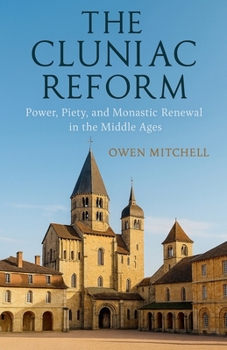The Cluniac Reform: Power, Piety, and Monastic Renewal in the Middle Ages
In the twilight of the Carolingian Empire, as Viking raids devastated Europe and feudal chaos replaced imperial order, a powerful nobleman made an extraordinary decision. Duke William of Aquitaine's foundation of a small monastery in the wooded hills of Burgundy in 910 would transform Western civilization in ways no one could have imagined. Within two centuries, Cluny had become the epicenter of the most influential religious movement of the Middle Ages-a monastic empire spanning four countries with over a thousand dependent houses, all answering to a single abbot.
This book reveals the dramatic story of how Cluny rose from humble beginnings to reshape medieval society. Readers will journey from the crisis-torn tenth century through Cluny's golden age and eventual revolutionary destruction, discovering how this remarkable institution influenced everything from papal politics to village life. The visionary leadership of extraordinary abbots-Odo the reformer, Hugh the empire-builder, and Peter the Venerable, friend to both Bernard of Clairvaux and Peter Abelard-comes alive through vivid narrative and carefully chosen primary sources.
Far more than just a religious history, this account illuminates how Cluny's monks pioneered revolutionary approaches to art, architecture, music, administration, and even conflict resolution that still resonate today. The breathtaking church they built-the largest in Christendom until St. Peter's in Rome-exemplified their outsized ambitions and cultural impact. When revolutionaries finally demolished this masterpiece stone by stone, they sought to erase Cluny's legacy-yet its influence proved impossible to destroy.
Drawing on the latest scholarship and archaeological discoveries, this compelling narrative reveals how a single monastery transformed European society at a pivotal moment in history. Readers interested in medieval history, religious movements, architectural innovation, or the complex relationship between spiritual and worldly power will find in Cluny a fascinating window into the soul of the Middle Ages.





